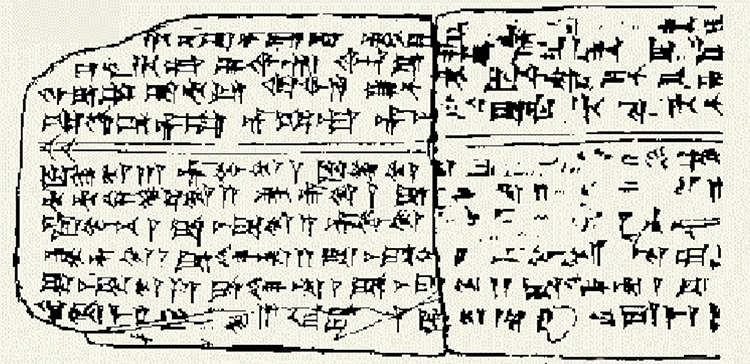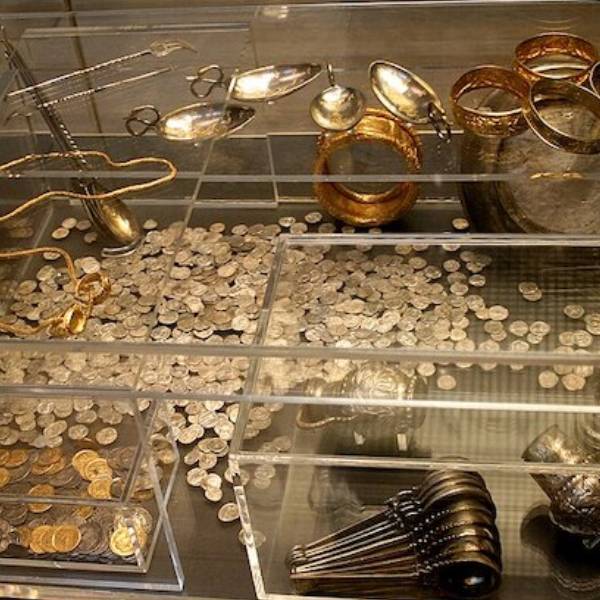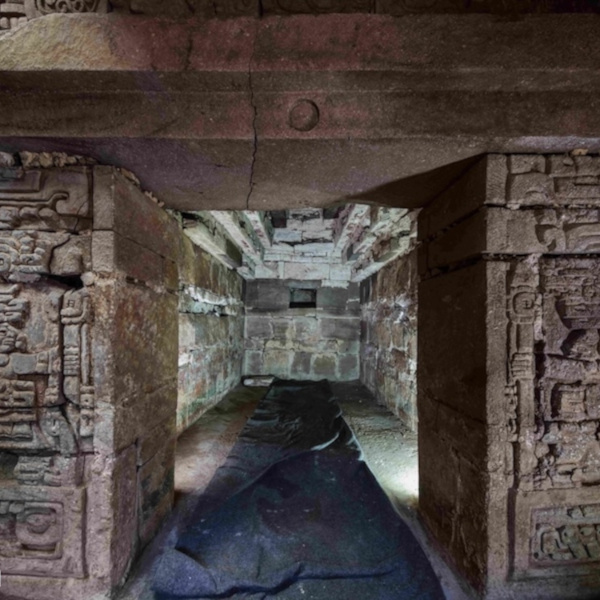
A drawing of the tablet bearing Hurrian Hymn No. 6. (Photo: Wikimedia Commons, Public domain)
Music may be as old as mankind, but the songs of the ancient past are largely lost to history. Among those to create and play music were the ancient residents of Mesopotamia. Within this cradle of civilization, history, laws, and religious texts were recorded in cuneiform on tablets. Many have survived, including an exceptional tablet: the earliest extant sheet music in the world. Known as “Hurrian Hymn No. 6,” the 3,400-year-old tablet records a tune in praise of the ancient goddess Nikkal.
The ancient Hurrians were a Bronze Age people of the Near East. They had a rich culture, although much of their history and origins remain shrouded in mystery. They left behind clues however, such as a tablet bearing cuneiform discovered in the 1950s in the ruins of the city of Ugarit in northern Syria. The city was a center of trade and exchange with other Near Eastern civilizations, and even kingdoms as far as Egypt. On the tablet are four lines of text in the Ugarit dialect. While the language is difficult to interpret, the “Hurrian Hymn No. 6 “is clearly the world's earliest extant melody or song.
The words of the song lie in the upper quadrant, while the lower contains the “notes.” Scholars believe that sections of repeated lyrics indicate a refrain. The Akkadian cuneiform below is a heptatonic diatonic scale for a nine-stringed lyre. They are known as musical intervals. While the exact translations are somewhat contested, Professor Anne Draffkorn Kilmer of the University of California, Berkley translated the tablet in the 1970s and first attempted the ancient song. She and her colleagues created a record of it entitled, Sounds From Silence, which you can listen to below.
The “Hurrian Hymn No. 6” tablet is one of 29 musical texts discovered in the palace of Ugarit dating to around 1,400 B.C.E. as Hurrian civilization was waning. These musical relics are not the oldest ever discovered, although the oldest full song. A fragment of 4,000-year-old Sumerian musical notation with instructions and tunings for a song about the ruler Lipit-Ishtar predates the “Hurrian Hymn.” Investigating these earliest works shows the rich knowledge of music among the ancients, suggesting music is a pleasure and an art that humans have always appreciated.
Listen to the “Hurrian Hymn No.6,” a hymn to Nikkal, an ancient Mesopotamian goddess.
The clay tablet from the ancient Syrian city of Ugarit is the oldest known sheet music in the world at 3,400 years old.
h/t: [Open Culture]
Related Articles:
Art History: Ancient Practice of Textile Art and How It Continues to Reinvent Itself
Sister Duo Weaves Textured Wall Hangings Inspired by Australian Landscapes
How to Crochet: Learn the Basics of This Time Honored Handicraft
Artist Fills Forest with Life-Size Sculptures Made from Woven Rods of Willow






















































































